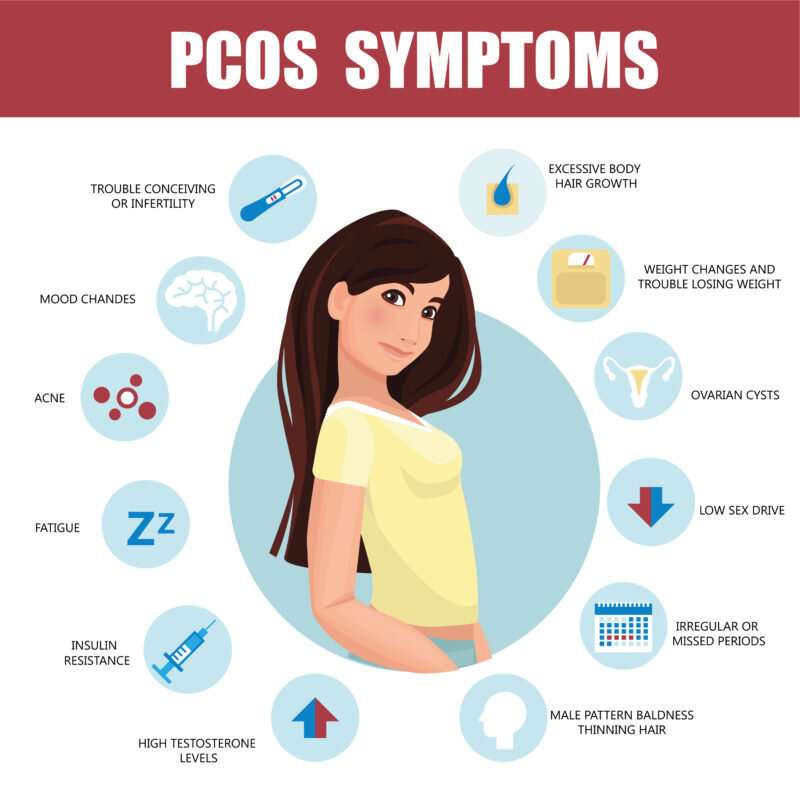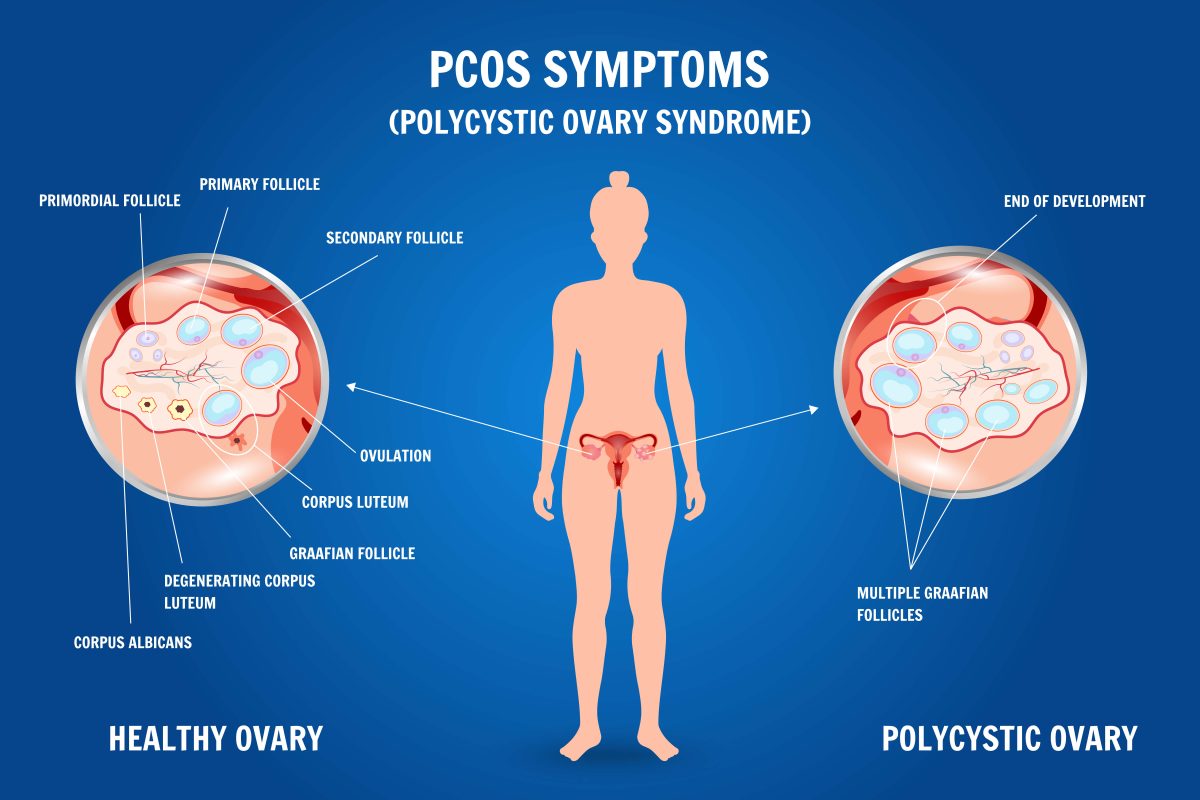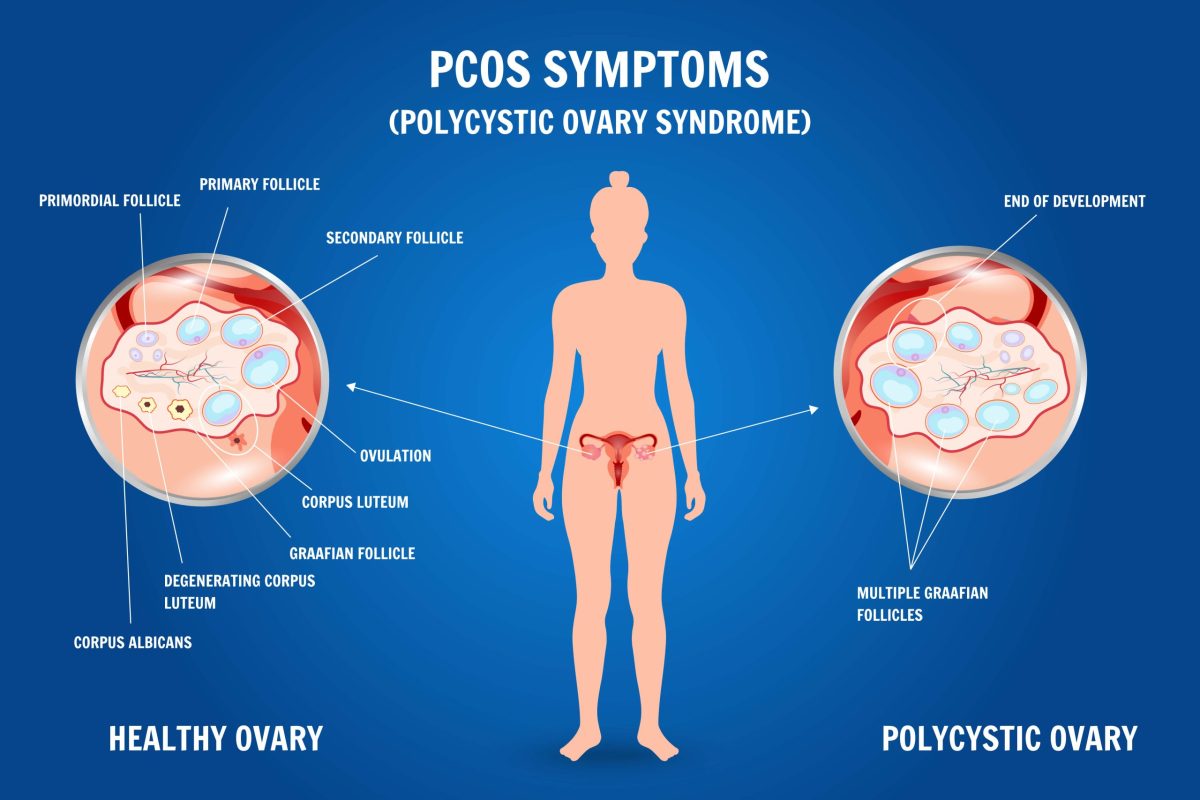
PCOS Symptoms in Women – Causes, Signs & Treatment Options
PCOS symptoms in women are now one of the most common gynecological health concerns in India. Nearly 15–22% of women of reproductive age suffer from Polycystic Ovary Syndrome (PCOS). PCOS symptoms in women usually appear as irregular periods, acne, hair fall, weight gain and difficulty conceiving. Early diagnosis and expert treatment can help control PCOS symptoms in women and restore ovulation naturally or via fertility therapies.
Common PCOS Symptoms in Women
- Irregular or missed menstrual cycles – a major indicator of PCOS symptoms in women
- Hormonal acne and oily skin
- Unwanted facial or body hair growth
- Hair thinning or scalp hair loss
- Weight gain or inability to lose weight
- Dark pigmentation around the neck or underarms
- Pelvic pain or ovarian cysts detected via ultrasound
- Difficulty conceiving or repeated IVF failures
Main Causes of PCOS in Women
The most common causes behind PCOS symptoms in women include insulin resistance, hormonal imbalance, lifestyle disorders, obesity, stress, and genetic predisposition.
- Insulin resistance creating androgen hormone imbalance
- Genetic factors with family history of PCOS
- Hormonal disruptions between estrogen & progesterone
- Sedentary lifestyle increasing weight-related complications
Diagnosis of PCOS
Diagnosis of PCOS symptoms in women includes menstrual history, ultrasound pelvic scan, hormonal blood tests, thyroid screening, insulin testing and lipid profile evaluation.
Best Treatment for PCOS Symptoms in Women
The best management for PCOS symptoms in women depends on fertility goals and age.
Lifestyle Correction
- Balanced low-carb diet
- Regular walking & resistance exercise
- Weight control
- Stress reduction techniques
Medical Treatment
- Medicines to regulate cycles
- Ovulation induction therapy
- Hormonal medications
Fertility Treatment
- IUI for mild infertility cases
- IVF therapy for severe PCOS & ovulation failure
- Laparoscopic ovarian drilling in resistant PCOS
Best PCOS Doctor in Panchkula & Chandigarh
Women searching for the best PCOS doctor in Panchkula or a trusted PCOS gynecologist in Chandigarh consult
Dr. Nitasha Gupta, an expert Gynecologist & IVF Specialist providing advanced fertility care to women from Panchkula, Mohali, Zirakpur, Chandigarh and Dera Bassi.
View Google Business Profile for clinical appointment
Book Your PCOS Consultation
Early treatment of PCOS symptoms in women significantly increases pregnancy success rates.
Click here to book PCOS appointment now
FAQs – PCOS Symptoms in Women
Is PCOS dangerous?
Untreated PCOS symptoms in women can lead to infertility, diabetes and hormonal disorders but are manageable with treatment.
Can PCOS be cured permanently?
PCOS cannot be cured permanently, but PCOS symptoms in women can be completely controlled with medical and lifestyle therapy.
Can women with PCOS conceive naturally?
Yes — over 80% conceive naturally or with ovulation induction, IUI or IVF support.
Which doctor treats PCOS in Panchkula?
Dr. Nitasha Gupta is a leading PCOS doctor in Panchkula trusted for hormonal regulation and fertility treatment.








